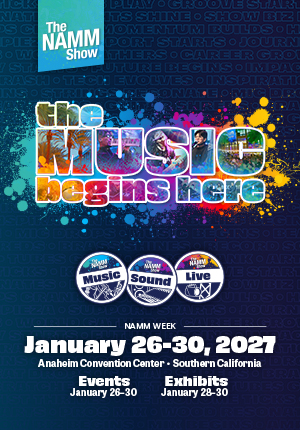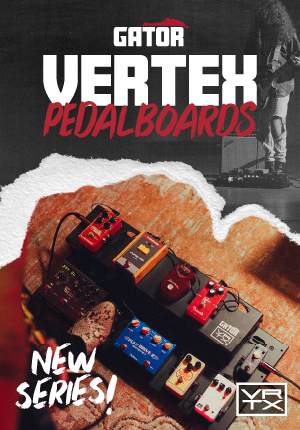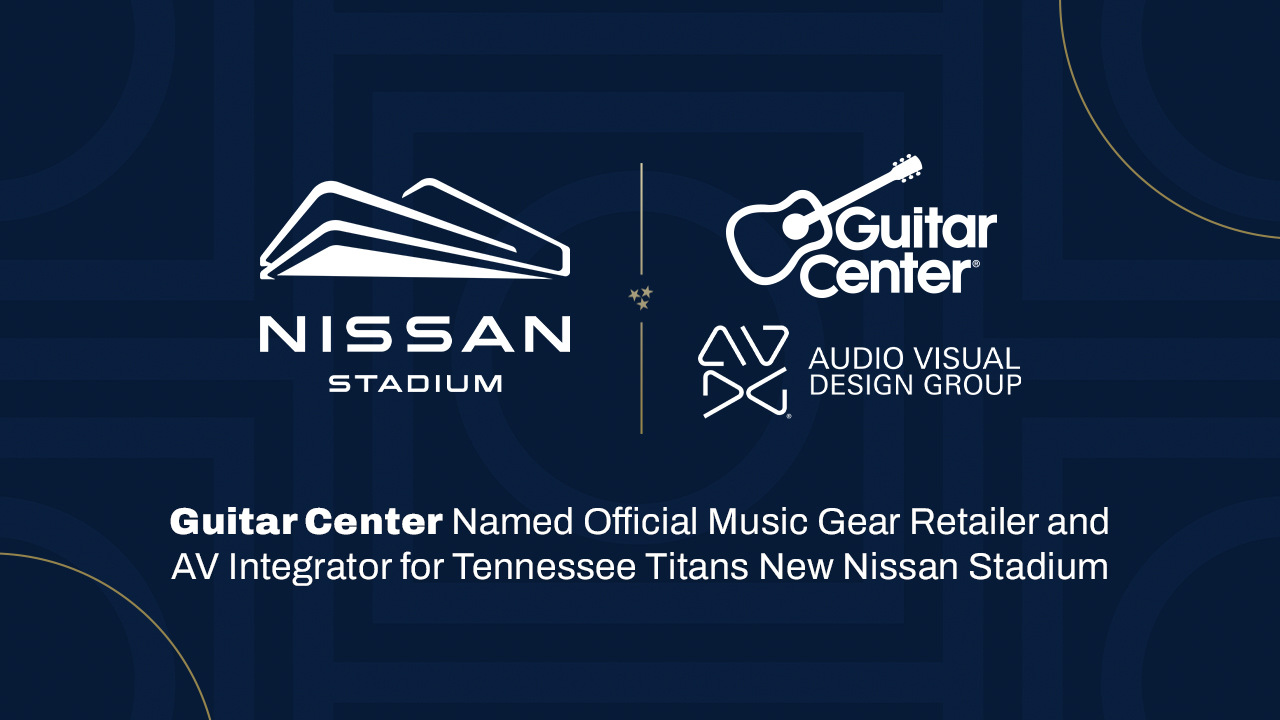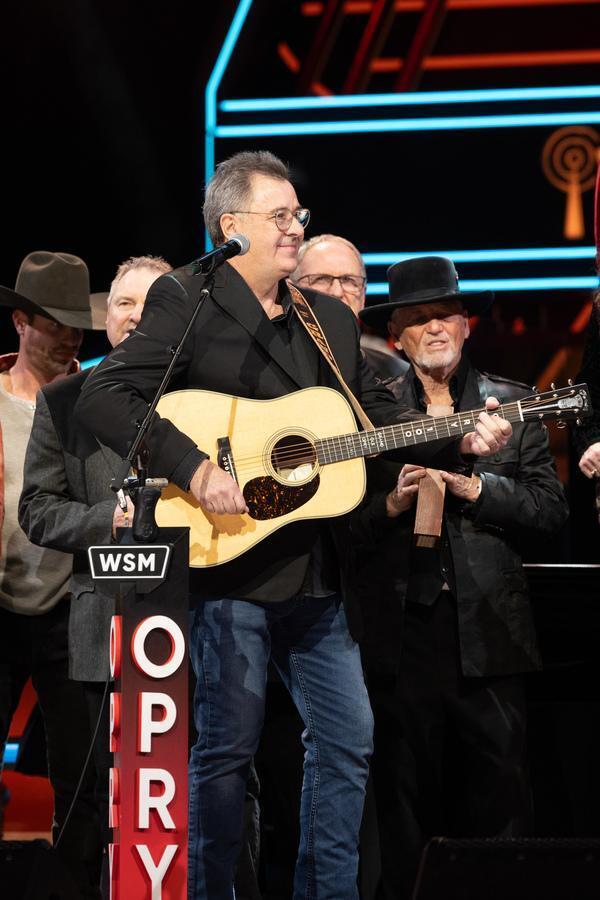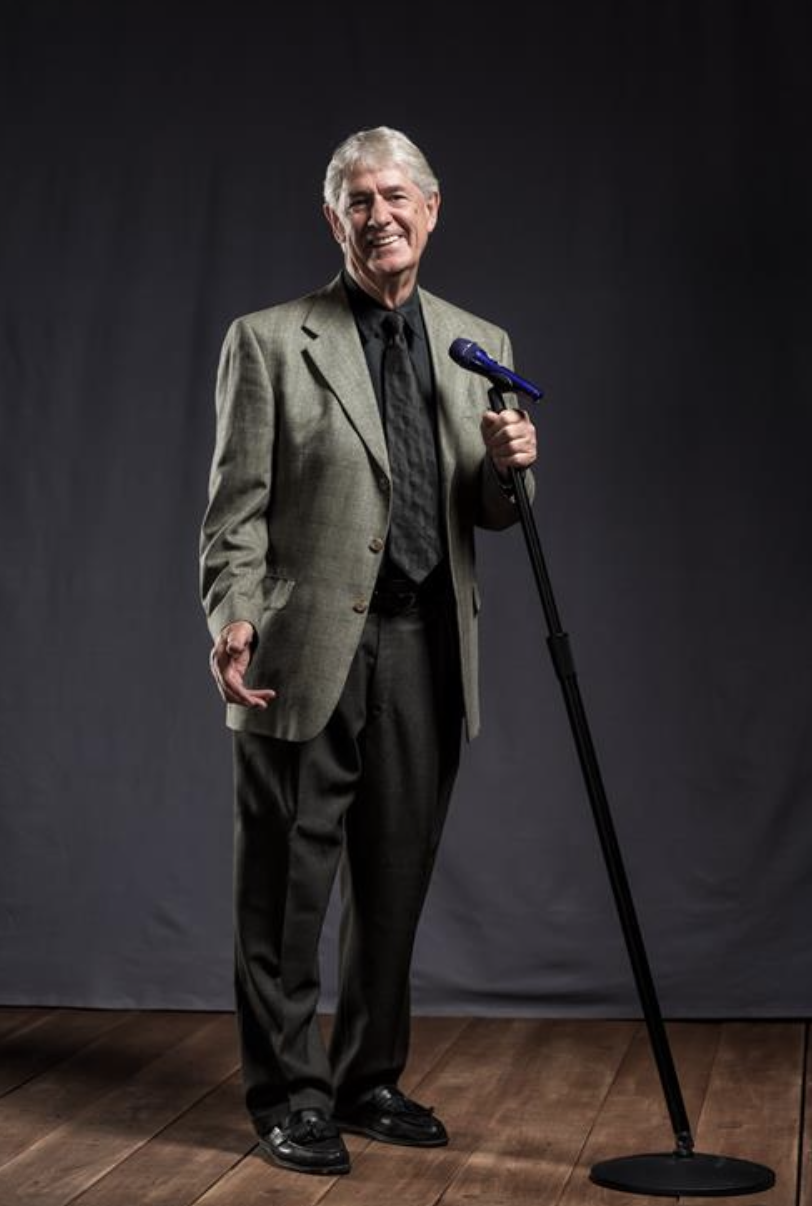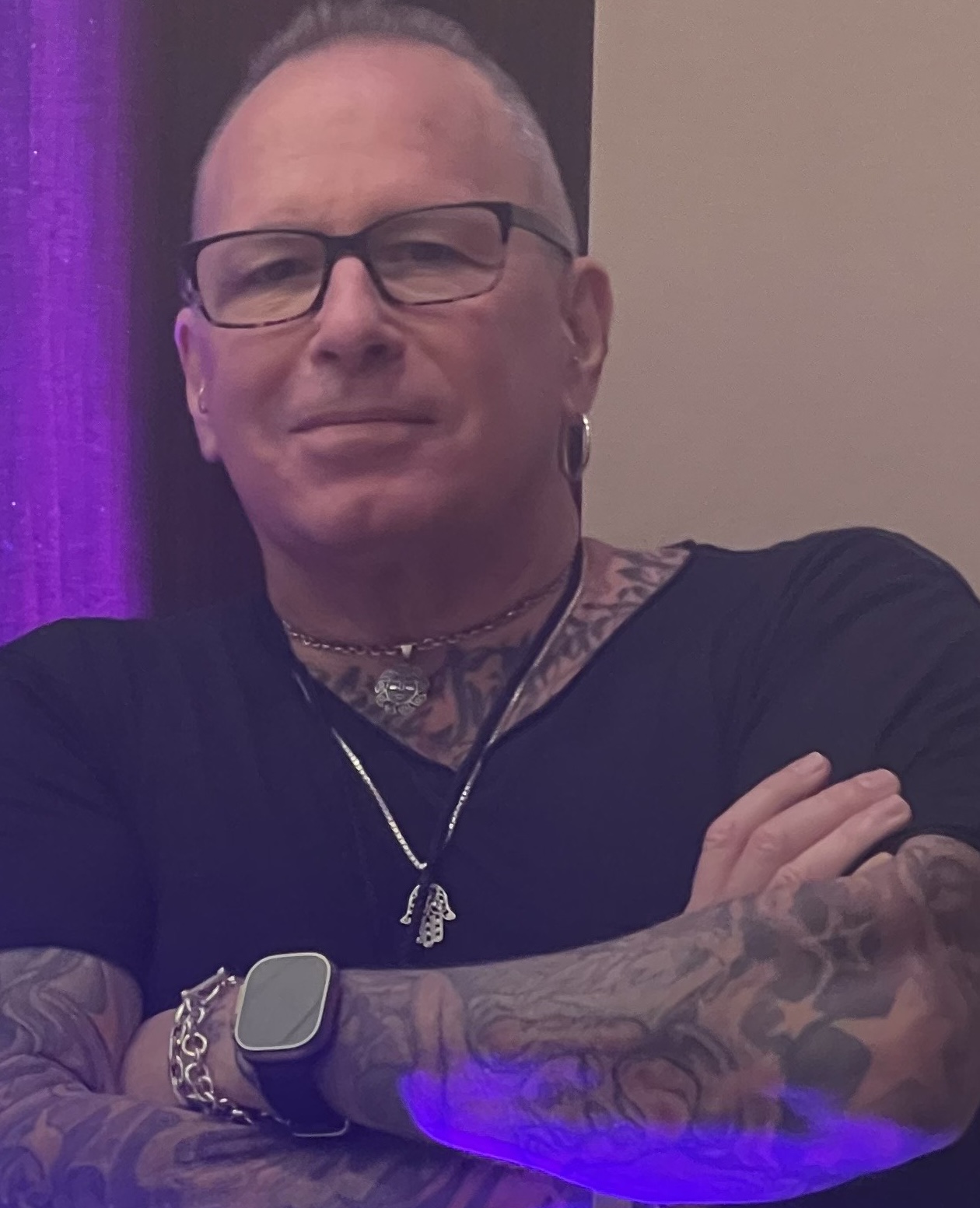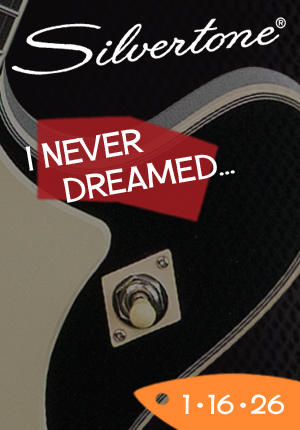May 28, 2020 I Q&A
Hal Leonard Finds Bright Spots In Dark Times
Hal Leonard has been hit hard by the personal and business disruption caused by the coronavirus pandemic — but is seeing a rebound.
By Frank Alkyer
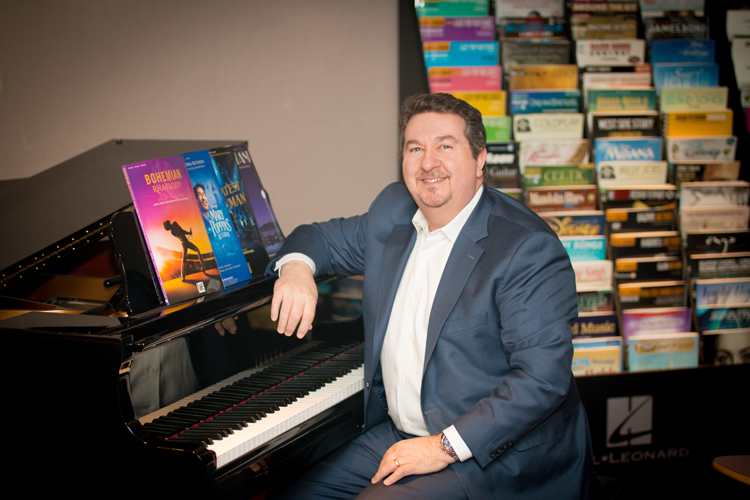
Larry Morton
Hal Leonard, like every company in the music products industry, has been hit hard by the personal and business disruption caused by the coronavirus pandemic. The Milwaukee, Wisconsin-based supplier saw a 70-percent drop in sales in the two weeks after the nation began to shelter-in-place back in March, triggering an immediate furlough of roughly 19% of its staff.
But Hal Leonard is seeing a rebound. The company’s management quickly honed in on what could work during these trying times and how the company could help retailers who were totally shuttered or, at a minimum, slowed.
As a result, Larry Morton, Hal Leonard’s president and CEO, said he’s seeing a brighter outlook emerging with stronger than anticipated sales since that initial drop.
Frank Alkyer, Music Inc.’s publisher, sat down for a Zoom teleconference with Morton earlier this month to discuss the bumpy ride caused by the pandemic, how he and Hal Leonard have kept focus, what’s working and advice for retailers as we begin to reopen businesses.
The interview took place on May 15. And a lot changed in the two weeks since then.
“We’ve started bringing back employees in the U.S. and Europe this week,” Morton said in a followup email on May 26. “We’ll likely be back to normal staffing within a week or two. Business has been steadily improving and our distribution centers are getting busier each day. I’m so so happy to see this trend happening!”
He added that he hoped those trends were beginning to happen for the rest of the industry.
The following is an edited transcript of that May 15 conversation.
Frank Alkyer: Well, we’re all working from home. Who would have guessed it?
Larry Morton: It’s interesting, isn’t it? Hal Leonard’s headquarters was never kind of a remote working culture. We’d be in the office and doing our thing, which I love. I love the juice of that.
Alkyer: I always said you can’t make good magazines being apart. This is a team sport.
Morton: Collaboration. It’s kind of amazing. We got 150 people in a matter of a couple of weeks all on VPN and working from home, on Zoom, Skype and Microsoft Teams, those are our three platforms. It’s scary. It’s working. It’s making me rethink it a little bit. I think we will be a little more flexible when whatever normal looks like comes back around.
Alkyer: I hate to say it, but I agree. We’ll see. I don’t know that we’re making better magazines. But we are just doing what we have to do. Listen, without Zoom, without the technology we have in place at this time, this would not have worked.
Morton: No, we’re both publishers. The whole nature of that is collaboration. You’re writing and designing. You’ve got to see the overall editorial plan. Same issues for us. Without the technology, it would be impossible.
Alkyer: And there are still a lot of details just being lost, and we have to go back and say, “Oh, we forgot about that,” which I think over time, we’ll get better at it. Still, work has changed. Every morning, Mondays and Fridays are all-staff meetings, just to start the week and end the week right. Then, we meet with teams several times a day every day. To end the day, we have a sales meeting just commiserate because no ad sales were happening. But that is getting better. We sold more ads this week than we did the previous three.
Morton: It’s interesting you say that, like everyone else, when this was really coming down hard, and I think as we, like everybody, [were] starting to fathom the scope of this crisis. It went from “Oh, that’s happening over there,” to “Holy shit. This is happening right now, and right here.”
We completely shut down every marketing expense we could find. So no ads. Our direct-to-consumer stuff, we kept going because that was our only life blood. But it’s funny that you say it because we actually had a far better than expected April.
So I just gave the green light, a couple of days ago and said, “Hey, why don’t we resume some trade ads because I don’t want us to be invisible from the marketplace, and we’re doing some cool things with our dealer support services.”
So, we set this red line financially, where we said, “OK, we are going to re-forecast the rest of the year. Here’s our new red line and if revenue stays above that red line, we don’t have to do any more cuts.”
So we did our furloughs. We did our pay cuts. We did everything based on that red line, but we’ve been 30-40% over that red line for two months.
Alkyer: Is that right?
Morton: Now granted, we went drastic, we were like, “This is bad. Plan for the worst, hope for the best.” And so it’s starting to loosen just a little bit. We’re starting to see just a little glimmer of hope here and there.
Alkyer: You’re above the red line, but how far off are you from an average sales period?
Morton: From our standpoint, by the time [it was] mid-March and those store closings were running out, no different than all other suppliers, our business plummeted. I mean our B2B business was 70% down the first week or two and we weren’t sure how long that was going to sustain.
Fortunately for us, our product, being a publisher, is very e-commerce friendly, so our e-commerce customers from Amazon and Sweetwater and Musician’s Friend and Guitar Center and Ash others — and our own companies like Sheet Music Plus — all of that stepped into the breach. So we made up for a lot of that lost revenue.
I went back to look at our numbers. Through January and February — and this pains me to say this — we were up 11% over prior January, February. So, we’re rocking, man. We came out of NAMM feeling good, hitting on all cylinders.
March knocks down by 18%, which isn’t bad, but it was a mixed bag because the first part of the month was pretty good, and the second part of the month was terrible. So, we were up 11%, through February. Month of March, we go down 18%. But we were only 2.3% down for first quarter. Now, granted, that means we were way up in January, February, down and March. So we were really focused on what is April going to look like. That was a big concern.
And surprisingly for us, we hung in there. We finished April down 14%, which is really not that bad.
Alkyer: When else in business, would you say being down 14% is a win?
Morton: Right. So, that means our year-to-date through April, we’re down 4.7%. So, we’re not unhappy about that, given everything that’s going on.
Now, I will back up. When the real trauma of this hit and thousands of stores were forced to close, we had to take some immediate action.
Alkyer: We’re going to back to those first weeks when store sales plummeted?
Morton: Yes. Those first two weeks, when our B2B dealer sales were down 70%. This is mid-March to end of March. We had no idea where we were going to end up. So, we had to take some pretty dramatic action right away. We did the normal things like looking for operational reductions we could find, then, inevitably, we had to look at furloughs and salary cuts. So, yeah, we did salary cuts across the board, worldwide.
We took deep cuts there. We very carefully thought through what is the least amount of jobs we could furlough. We ended up furloughing 153 employees worldwide out of a total of about 800.
In that 153, it was a blend. Most were straight-out furloughs. Some were people saying, “Hey, you know what, I’m close to retirement. I’m going to retire.” Some people very nicely said, “Hey, I’m at a different stage of my life. I’ll just take myself out for a month or two until things get better.”
Alkyer: Saving somebody else’s job. Nice. That’s one of the recurring things that you hear from people in the midst of this. Just saying, “I can take the hit for right now.”
Morton: Exactly, and I’m really proud of our team because when we had to communicate pay cuts, which nobody wants, they all understood every dollar of a pay cut can save a job. So, that really worked out well. I was very, very proud of our team.
We did go down the furlough path as opposed to a traditional layoff because we intend to bring back as many of these people as we can.
So, they stayed in our system, and we gave them what we felt was an extensive amount of support financially with health benefits and so forth. We did that on March 30, when things were really, really bad. April, then, ended up not being as bad as we thought it might be, and May is already off to a pretty good start.
We want to see little more period of time to get a sense of where we are. And then, like everyone else, we’re also looking at this back-to-school season with a lot of trepidation.
What’s that going to look like? We don’t know what that looks like. So, that’s our big concern right now, looking at that to say, “OK, what’s that immediate next step?
In the meantime, different states are loosening up at different rates, so stores are starting to come around.
That’s the big heavy, but I want to talk to you about a big shift we made. We’re calling it The Pivot.
We had you do this triage. This horrible thing hits and you’re like, “We have to save the business.” Triage. Then you get through a few weeks of that shock and emotional distress. And then you have to go, “OK, this is our new world.”
How do you work in this new world? So we pivoted. We said, “Here are the areas where there are opportunities. We’re going to focus. So, across the company, we’ve had a re-allocating of staff. “You were doing X, now we want you to do Y.” Or “You used to do X and hand it off this person to do Y, you’re going to do both of them.”
And we have sales people who are trained to do other things, and we’re having them do other things like social media and marketing. So, we’re doing a whole transformation.
Our job is to supply tools and resources for people to make music. That’s our end-job. And if the landscape changes, that’s still a job. So we’ve got to use the resources we have to get our products into in those hands.
It’s been pretty amazing. I’ve been at Hal Leonard for 29 years. I’ve never seen so much creativity and innovation. There’s nothing like a little fear to get us all motivated. [Chuckles.]
Alkyer: It makes you think and rethink.
Morton: It makes you think. We’re doing a lot of cool things. So that’s been the mental shift going on, and I’ll say, we went through this just horrible feeling, like everyone else. And then we came out of it. We feel like we came out fighting. We’re really doing some cool stuff.
Alkyer: That cool stuff has got to be—obviously, right now on this day, at this time—digital.
Morton: Yeah, it’s actually a couple of things. We looked at into two places. One place is for the retail market, for the B2B side. What can we do to help?
We have a massive distribution facility. We have great online capabilities, so when dealers were trying to figure out how to handle curbside service and all this, we quickly moved in. We expanded our drop-shipping and fulfillment services. So, we’re doing fulfillment for —I just looked up the number this morning — for 1,100 retailers.
Alkyer: Is that right?
Morton: We’re operating as their warehouse. We’re providing fulfillment for them.
Alkyer: So, we’re obviously not just talking to print side, but also your musical instrument distribution business, which has grown into a considerable business over the years.
Morton: Yes. In fact, I was going to tell you, one part of our business, MI gear, has been largely unaffected by this. We’re actually above our budget, our original budget. It’s mostly home-recording gear, like IK Multimedia, Blue Microphones, Avid. I think it’s everybody gigging at home, doing Zoom virtual performances. That is booming.
Another area has been ukulele. The uke has been doing great and with people on stay-at-home, it has been like, “Boom.”
We did a deal with this new ukulele line called Flight.
Alkyer: Oh, sure, they got a Best In Show award at NAMM.
Morton: A husband and wife. I think they are from Slovenia and super-clever. They’ve built this social media network. They’ve got young, happy people doing social media with their ukes all around the world. They’ve got this community. Their numbers are unbelievable.
As I said, we’re doing a lot of fulfillment. We expanded our drop-shipping. We don’t charge fees for any drop shipping.
And then, the biggest thing is that we launched a new program called Prof-IT. Have you heard about this?
Alkyer: I did, but tell us about it.
Morton: It’s an acronym, and it’s pretty clever. Super kudos goes to Dave Jahnke [Hal Leonard’s senior vice president of national sales]. This was his brainchild.
So here you have a crisis, and people can’t go to their local music store, but you have this site called halleonard.com, which gets about two million unique visitors per month. They want to buy our stuff, but we don’t want to sell direct and cause problems with our dealers.
In the past, we’ve had this mechanism where you can make a shopping cart at halleonard.com, and then you could check out a local store or you could buy it online and the dealer system had to kick in.
Alkyer: Right.
Morton: It’s too many steps. The consumer just wants their stuff, and they want it now, and they’re buying it from their phone.
So Jahnke came up with the idea and our IT team jumped on it. The consumer comes to halleonard.com. They’re buying directly from us. But in the check out, we have a great pop-up box that says, “Support your local music community. Choose a retailer that you’d like to support in your area.” They click on that retailer, we pay commissions back to the store.
So, it’s immediate. We had about 175 dealers signed up in the first week. And we’re already selling product.
The part that we announced that didn’t get much attention — because it doesn’t matter right now — is the other part of Prof-IT is we’re going to provide an Amazon Locker kind of concept for consumers so they can buy the book at halleonard.com—find it and say, “Oh, I want that book,” or piece of gear for that matter, then they choose their store and then on the way home that night, they can go into the store and pick it up, or pick it up curbside.
Alkyer: Nice.
Morton: So, that way we’re linking our reach to the consumer and our e-com with that inventory that’s sitting in local stores right now.
Alkyer: I love it.
Morton: That’s been a big initiative. We have 7,000 storefronts that we sell to that aren’t open, or open on a very limited basis. How do we help them? That’s one part of it.
The other part of it is double down, triple down on all things digital. So, we’ve accelerated our distance learning programs and our subscription services.
We have Sheet Music Direct Pass, which is a Spotify sheet music subscription. And, we’ve modified our copyright rules so that teachers can share things digitally. We created a whole website area for them. They can click through so that they’re legally allowed to copy something that they bought that they want a copy [of] and share [it] with the network of students. So we just jumped all over distance learning and remote materials. Those are really the two big thrusts for us right now.
Alkyer: That’s awesome. OK, given all of this, how are you feeling right now?
Morton: As far as the market goes, I think it’s two parts near-term for us. We feel with where we came through in April and where we are with May, there’s enough loosening up that I think we’re going to see a modest improvement. I think we’re all going to start seeing that.
The next step we touched on, we’re just really worried about what does this school year look like. That drives so many parts of our business from band instrument rentals and orchestra rentals and what we do with methods.
So, we’re preparing a number of programs to service the school music market if it has to be in a modified way with small ensembles or small groups. So, instead of a 60-piece concert band, it’s going to be some kind of flex band, and we have to provide the parts digitally and work with the dealer on supply and other things. So we’re working towards a modified school year. That’s our current focus.
Alkyer: That seems very wise. In speaking with school music retailers, the massive concern has been what happens if we don’t start school again next fall.
Morton: I think we’re just trying to be practical and say, “OK what hasn’t changed?” What hasn’t changed is people’s desire to make music. You think about how music is that way. Music is forever. Two World Wars, multiple plagues, diseases, environmental disasters, you name it and somehow the desire to keep playing music survives that.
We just have to be creative and flexible about how to get people stuff to make music. It’s going to take different roles.
Alkyer: What does your business look like in the future?
Morton: I don’t know if normal is going to be the same normal we had before. I don’t know if everything’s going to come back the way it was, in some respects, until there’s a vaccine and we can fully embrace being together.
I think we’re going to have to accept this is the new normal for a while.
Once there is a vaccine and there’s this ability to rejoin society the way we want to, I think music will just explode.
I think it will be, “Oh my God, I can’t wait to get back and hear that band. I can’t wait to go sing and play with my friends. I can’t wait to jam with my buddies.” I think that will just explode and there’s going to be a nice economic swoosh with that.
So, if we can just be flexible and modify until then, we will ride that wave.
Alkyer: I agree with that. The challenge is that our retailers are being hurt. Our musicians, most of them were living gig to gig, are being hurt worse.
Morton: I think the retail side is going to have to adapt. The relationship between the retailer and the consumer is going to have to be more than just the physical store.
Alkyer: It’s going to force something that we’ve been preaching in our magazine, that you’ve been preaching to your customers. You’ve got to be online in a major way. It’s got to be a big component of what you do.
Morton: I worry about the smaller stores that aren’t going to make it through this crisis. It’s kind of a two-way street. I think stores are going to have to do everything you just said. They have got to really integrate the online experience with them as a sphere of influence in their community with the physical store. But also, I think the physical store’s got to change, too, and be more of a destination and more engagement. It needs to be a place you go to do things as well as just buy things.
If it’s just a place to go buy things, then you’re going to be at risk because I mean look at grocery stores and Instacart grocery delivery.
I don’t know that we’re going to be going into that store as much in the future even when we can because, you know what, on Thursday night at 8 p.m., it’s kind of convenient to go, “I need this, this, this, this and this” on my phone and the next day, it shows up.
Music stores have to be more and more a place where you go do stuff, not just a place to buy stuff. That’s going to be a key differentiator from this.
Alkyer: Lessons. Community. Experience. Which is nothing we haven’t believed in the past, but now it’s even more important. And, by the way, you can’t be just that. You’ve got to have that online experience equal to your in-store experience.
Morton: That’s right, exactly right. This summer, we’re doing virtual workshop tours. I think it’s around 60, and I don’t know the exact number. Every summer, we send out an army of Hal Leonard clinicians doing piano, guitar, band, orchestra and choral workshops all around the country, in the world. We can’t do it this year.
So, we decided we would work with retailers the same way. Instead of just Hal Leonard doing it, we’re doing it, but with a retail sponsor. So X, Y, Z Music is going to host the Zoom clinic with Tim Lautzenheiser or Randy Faber or one of our great clinicians.
We’re trying to plant that seed of that store being a center of influence where I, as a customer, don’t just go there to pick up a box and pay for it. I go there because they are my connection into the music community as a consumer.
So, we’re trying to get that sort of mentality going this summer. That’s part of our pivot. So the energy we would have put into going to TMEA or Summer NAMM for that matter, we’re going to put money and effort into these things instead.
Alkyer: If you have one piece of advice for retailers right now what would be?
Morton: Communicate, communicate, communicate. I would say make sure you’re not isolating your influence in your community. While we’re physically isolated, they need to be sending out emails. They need to be posting on Facebook. They need to be hosting virtual events. They should be communicating with their suppliers, partnering ideas.
I think a lot of stores, especially small stores, are hesitant to do that right now because maybe they’re not able to pay. So they feel like, “I can’t pay my bill, so I don’t want to call my supplier.” Speaking as a supplier, we’d rather hear from them. Talk to us. Let us help you. Let us work together to help your business and eventually we’ll get paid. It is so important.

